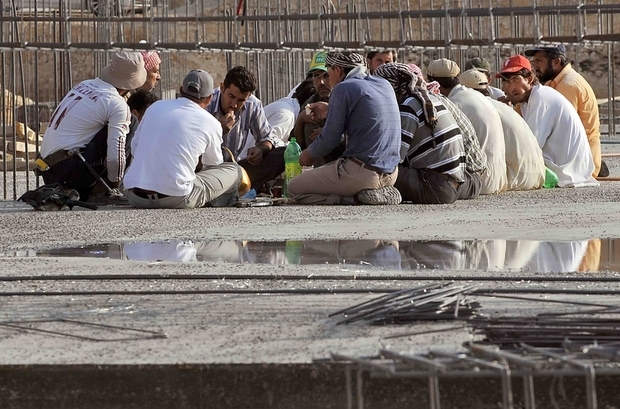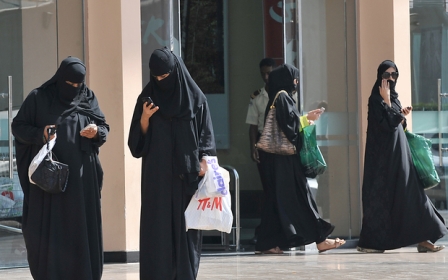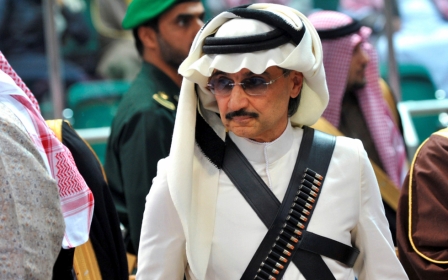Saudi Arabia sacks labour minister seven months into job

Saudi Arabia's King Salman on Friday sacked the labour minister who headed efforts to help tens of thousands of unpaid foreign workers.
After being in the position for only seven months, Mufarrej al-Haqbani was replaced by Ali al-Ghifaidh, according to a royal order published by the official Saudi Press Agency. An official reason for his sacking was not given.
A crisis in the construction sector peaked shortly after Haqbani's appointment, as some workers who had gone months without salaries were left also without food and other essentials.
Saudi Arabia is in financial crisis because of a collapse in oil revenue that accounts for 80 percent of government income. In 2015 the government posted a record $98bn budget deficit, causing many of the kingdom’s construction projects to be suspended or cancelled.
Big companies, including the Bin Ladin Group and Saudi Oger, have attracted significant media attention as tens of thousands of foreign workers have been left destitute and stranded, unpaid for months before being laid off.
Officials from India, Pakistan and the Philippines – three countries that together have at least 30,000 citizens stranded in Saudi Arabia – have said they are working to solve problems faced by Bin Ladin and Oger employees, but workers at smaller firms, including United Seemac, say they are receiving little help.
The government stepped in, offering to pay for the workers' flights home and to cover food and accommodation when the employers were no longer meeting obligations.
After Saudi Arabia's oil revenue collapsed, the government was left owing billions of dollars to private firms, chiefly in the construction sector, which in turn could not pay their workers.
The government has vowed to clear the arrears by this month.
Haqbani was appointed in May as part of a major government reshuffle that merged various ministries, including labour and social affairs, to reflect new priorities under a wide-ranging plan to diversify the economy.
The plan, Vision 2030, also seeks greater government accountability and is driven by King Salman's powerful son, Deputy Crown Prince Mohammed bin Salman, 31.
On 1 November, King Salman sacked veteran finance minister Ibrahim al-Assaf and replaced him with Mohammed Aljadaan, head of the Capital Market Authority, the regulatory body over the country’s stock market.
In other decrees on Friday, Salman removed the director general of the customs department and fired the secretary general of the Shura Council, which advises the cabinet.
The king appointed 150 members of the council, including 30 women, some of whom were new.
They will serve four-year terms on the council, which has no legislative authority.
Salman also named members to the Grand Ulemas Council, the kingdom's top religious body.
Most of its members appeared to be unchanged, and it will continue to be led by Grand Mufti Sheikh Abdulaziz al-Sheikh, a descendant of 18th century Sunni preacher Sheikh Mohammed bin Abdul Wahhab, on whose conservative teachings the Islamic kingdom is founded.
New MEE newsletter: Jerusalem Dispatch
Sign up to get the latest insights and analysis on Israel-Palestine, alongside Turkey Unpacked and other MEE newsletters
Middle East Eye delivers independent and unrivalled coverage and analysis of the Middle East, North Africa and beyond. To learn more about republishing this content and the associated fees, please fill out this form. More about MEE can be found here.




